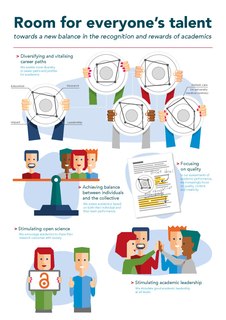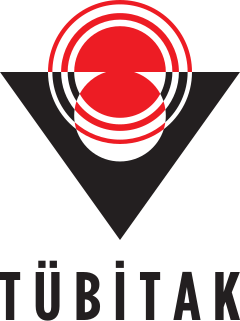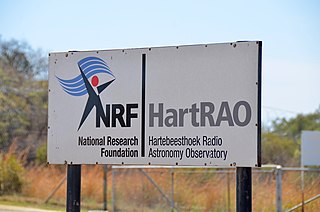Related Research Articles

Science policy is concerned with the allocation of resources for the conduct of science towards the goal of best serving the public interest. Topics include the funding of science, the careers of scientists, and the translation of scientific discoveries into technological innovation to promote commercial product development, competitiveness, economic growth and economic development. Science policy focuses on knowledge production and role of knowledge networks, collaborations and the complex distributions of expertise, equipment and know-how. Understanding the processes and organizational context of generating novel and innovative science and engineering ideas is a core concern of science policy. Science policy topics include weapons development, health care and environmental monitoring.

The Ministry of Education, Culture, Sports, Science and Technology, also known as MEXT, Monka-shō, is one of the eleven Ministries of Japan that composes part of the executive branch of the Government of Japan. Their goal is to improve the development of Japan in relation with the international community. They are responsible for funding research under their jurisdiction, some of which includes: children's health in relation to home environment, delta-sigma modulations utilizing graphs, gender equality in sciences, and other general research for the future.

Cochin University of Science and Technology (CUSAT) is a government-owned autonomous science and technology university in Kochi, Kerala, India. It was founded in 1971 and has two campuses: one in Kochi, and one in Kuttanad, Alappuzha, 66 km (41 mi) inland. The university awards degrees in engineering and science at the undergraduate, postgraduate and doctoral levels. In the 2016-17 Times Higher Education World University Rankings, CUSAT is the only institution in Kerala, is one among the 31 institutions in the country to be ranked in the global survey.
Defence Science and Technology (DST) is part of the Australian Department of Defence dedicated to providing science and technology support for Australia's defence and national security needs. It is Australia's second largest government-funded science organisation after the CSIRO. The agency's name was changed from Defence Science and Technology Organisation (DSTO) to Defence Science and Technology on 1 July 2015.
Innovation, Science and Economic Development Canada, is the department of the Government of Canada with a mandate of fostering a growing, competitive, and knowledge-based Canadian economy. ISED specifically supports Canadian innovation efforts, trade and investment, enterprise growth, and customized economic development in Canadian communities.
Forfás was the national policy advisory board for enterprise, trade, science, technology and innovation in Ireland. The agency was established in January 1994 under the Industrial Development Act, 1993 and was run by a board appointed by the Minister for Jobs, Enterprise and Innovation, to whom the agency was responsible. Forfás was dissolved on 1 August 2014 and its functions were transferred to the Department of Jobs, Enterprise and Innovation, Enterprise Ireland, the Industrial Development Authority and the Health and Safety Authority.
The Human Sciences Research Council (HSRC) of South Africa is Africa's largest dedicated social science and humanities research agency and policy think tank. It primarily conducts large-scale, policy-relevant, social-scientific projects for public-sector users, for non governmental organisations and international development agencies in support of development nationally, in the Southern African Development Community (SADC) and in Africa.
The Jawaharlal Nehru Centre for Advanced Scientific Research (JNCASR) is one of the premier institutes in India. It is known for its excellent, innovative, and collaborative interdisciplinary approach toward conducting scientific research. In the three decades since its establishment, JNCASR has grown to become one of the top research institutes not only in India but also globally. Currently, JNCASR is ranked at 710 out of the top 2000 universities worldwide, according to the 2019–2020 College and university rankings, the largest academic ranking of global universities. It was also recently listed among the top ten Young Graduate Universities and ranked the 40th among top 100 Young Universities globally by Nature Index 2019. Furthermore, in 2002, the Centre was recognised as a deemed university and is now one of the leading institutes in the country providing world-class higher education in the field of Science and Engineering.

The Scientific and Technological Research Council of Turkey is a national agency of Turkey whose stated goal is to develop "science, technology and innovation" (STI) policies, support and conduct research and development, and to "play a leading role in the creation of a science and technology culture" in the country. TÜBİTAK was founded in 1963 as an autonomous public institution, governed by a Science Board.

South Africa’s National Research Foundation (NRF) is the intermediary agency between the policies and strategies of the Government of South Africa and South Africa's research institutions.
National Innovation Foundation (NIF) – India is an autonomous body of the Department of Science and Technology (DST), Government of India. It was set up in February 2000 at Ahmedabad, Gujarat and is India's national initiative to strengthen the grassroots technological innovations and outstanding traditional knowledge. Its mission is to help India become a creative and knowledge-based society by expanding policy and institutional space for grassroots technological innovators.
The Department of Science and Technology (DST) is a department within the Ministry of Science and Technology in India. It was established in May 1971 to promote new areas of science and technology and to play the role of a nodal department for organising, coordinating and promoting Scientific and Technological activities in the country. It gives funds to various approved scientific projects in India. It also supports various researchers in India to attend conferences abroad and to go for experimental works.

The America Creating Opportunities to Meaningfully Promote Excellence in Technology, Education, and Science Act of 2007 or America COMPETES Act was authored by Bart Gordon and signed by President George W. Bush; it became law on 9 August 2007. This was an Act, "To invest in innovation through research and development, and to improve the competitiveness of the United States."

The Council for Scientific and Industrial Research (CSIR) is South Africa's central and premier scientific research and development organisation. It was established by an act of parliament in 1945 and is situated on its own campus in the city of Pretoria. It is the largest research and development (R&D) organisation in Africa and accounts for about 10% of the entire African R&D budget. It has a staff of approximately 3,000 technical and scientific researchers, often working in multi-disciplinary teams.
The Academy of Science of South Africa (ASSAf) is the national science academy for that country. It was started in 1996, and encompasses all fields of scientific work. Its legal foundation is the Academy of Science of South Africa Act, Act 67 of 2001, which came into operation in May 2002.

The Council for Scientific and Industrial Research (CSIR) was established by NLC Decree 293 of October 10, 1968 amended by NLCD 329 of 1969, and re-established in its present form by CSIR Act 521 on November 26, 1996. The genesis of the Council however, dates back to the erstwhile National Research Council (NRC), which was established by government in August 1958 to organize and coordinate scientific research in Ghana. In 1963, the NRC merged with the former Ghana Academy of Sciences, a statutory learned society. Following a review in 1966, the Academy was reconstituted into, essentially, its original component bodies, namely a national research organization redesignated the CSIR and a learned Society, designated the Ghana Academy of Arts and Sciences.

The South African National Space Agency (SANSA) is South Africa's government agency responsible for the promotion and development of aeronautics and aerospace space research. It fosters cooperation in space-related activities and research in space science, seeks to advance scientific engineering through human capital, as well as the peaceful use of outer space, and supports the creation of an environment conducive to the industrial development of space technologies within the framework of national government.

The Technology Innovation Agency was created by an act of the South African parliament on 24 November 2008.

The education in Gjilan includes primary, secondary education, and a public university. Currently there are 23608 Albanian students and 881 minority students enrolled in educational institutions around Gjilan.
Science and technology in Uganda examines government efforts to develop a national innovation system and the impact of these policies.
References
- ↑ "Minister". www.dst.gov.za.